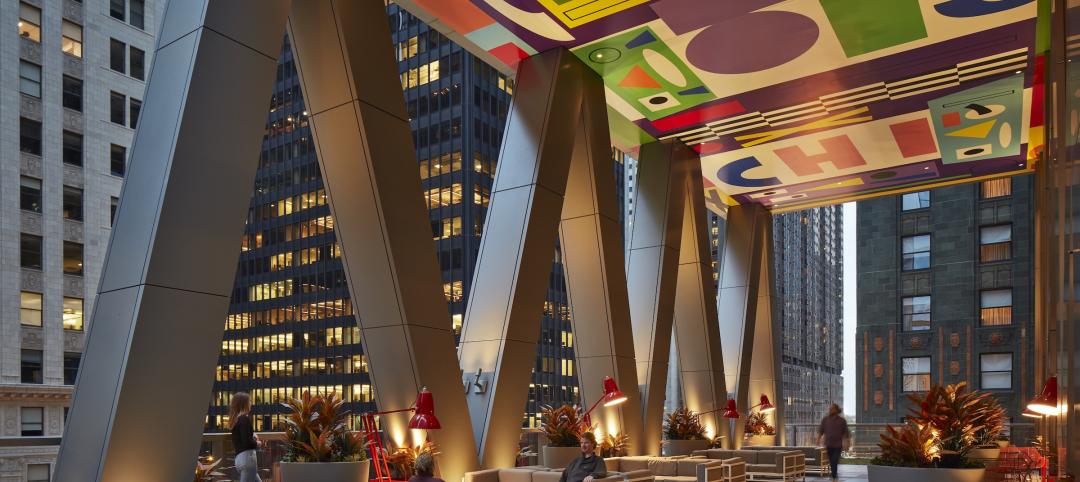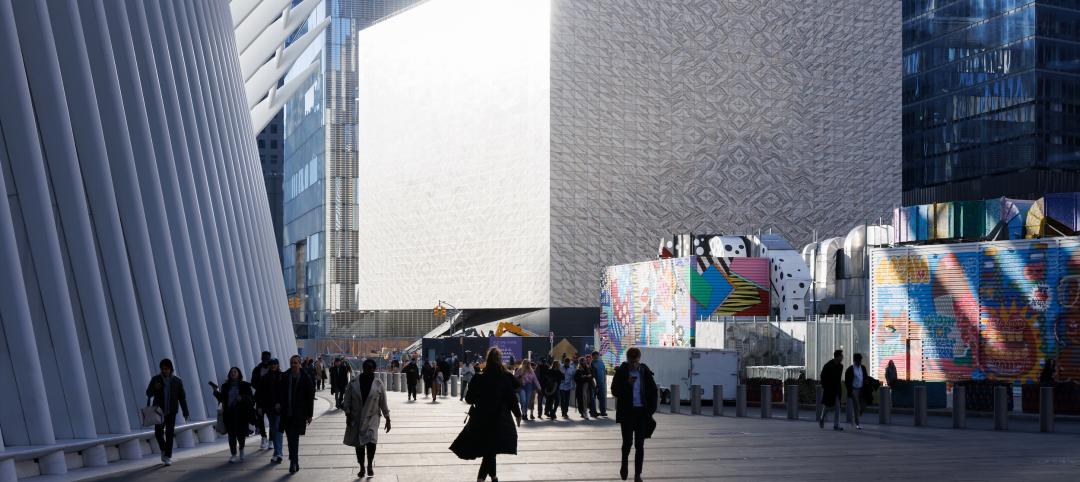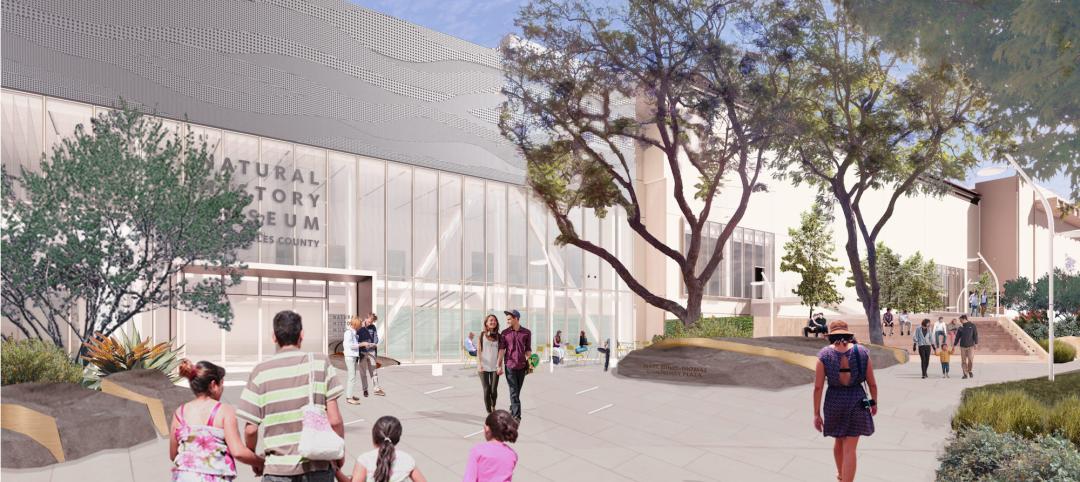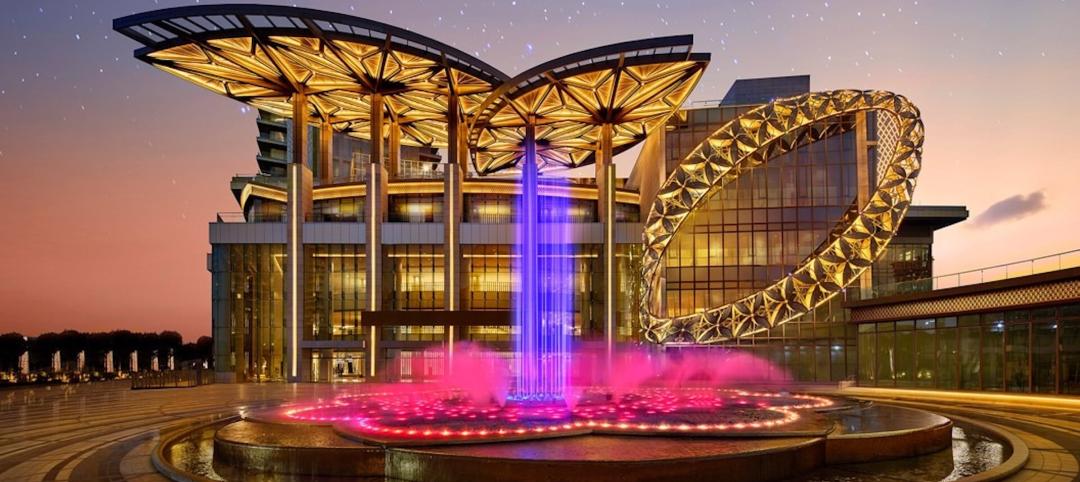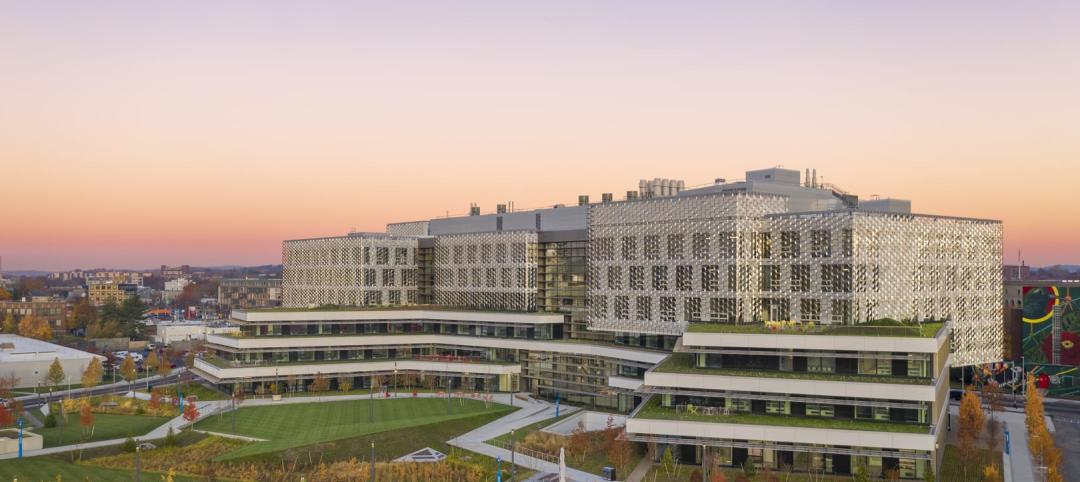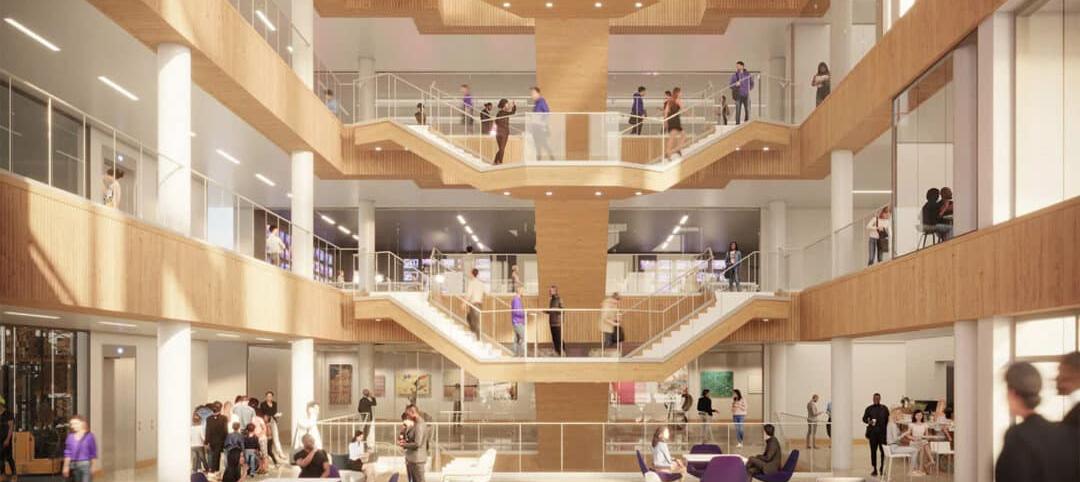The Old Patent Office Building in Washington, D.C., completed in 1867, houses two Smithsonian Institution museums—the National Portrait Gallery and the American Art Museum. Collections include portraits of all U.S. presidents, along with paintings, sculptures, prints, and drawings of numerous historic figures from American history, and the works of more than 7,000 American artists. Following a major renovation, these national treasures, as well as long-hidden architectural features of the 380,000-sf Greek Revival building, can now be viewed in natural light for the first time in decades.
The restoration project Building Team, led by Hartman-Cox Architects, Washington, restored and showcased elements such as the porticos modeled after the Parthenon in Athens, a curving double staircase, colonnades, vaulted galleries, massive windows, and block-long skylights. The effort also restored full visitor access and circulation on all three floors by relocating staff offices to an adjacent building, while opening up 40,000 sf for galleries by removing infill walls and partitions.
The Building Team made extraordinary efforts to use new preservation technologies for restoration of the historic fabric of the building and to re-use historic materials. This included the replacement of the roof with a standing and flat-seam copper exterior. More than 550 windows were replaced, each with an energy shield and UV filter to protect the artworks, while the exterior layer was done in mouth-blown glass, emulating the look of historic glass.
Original marble pavers were salvaged, numbered, restored and reinstalled throughout the building. White oak wood floors consistent with the original design were installed in the remainder of the building.
The project also added several new spaces, two of which are open to visitors—the Lunder Conservation Center and the Luce Foundation Center for American Art. In addition, the Robert and Arlene Kogod Courtyard and the Nan Tucker McEvoy Auditorium, a 346-seat multipurpose space with advanced audio-visual capabilities that was constructed beneath the courtyard, add to the museum's versatility. New monumental stairs and an elevator were added to connect the public entrances at G Street to the auditorium.
A key component of the project was the wholesale replacement of mechanical and electric systems to bring the facility up to current museum standards for lighting and temperature control. As a solid masonry building, however, there was no plenum space in which to place the new systems. The Building Team concealed the M/E components within former ventilation and chimney shafts and under the floors. This set up required modification to the chases to accommodate ductwork and piping. New boilers, chillers, cooling towers, air-handling units, fan coil units, pumps, duct work, and piping were installed so that they would not intrude within the gallery spaces.
Infrastructure modernization included a new telecommunications system with new fiber optic and copper cable, a new fire alarm system (including addressable smoke and heat detectors), and upgrades to the existing fire protection system. A new security system, including glass break and shock sensors, motion detectors, and cameras, will help guard the priceless exhibits.
Restoration of architectural detailing included replacement of worn encaustic and geometric tiles in the Great Hall with handmade, historically accurate, multi-colored replicas produced in England. On the exterior, workers cleaned, patched, and pointed the stone facades.
“The architectural details of the Smithsonian Portrait Gallery restoration were extremely carefully thought out,” said Walker Johnson FAIA, honorary chair of BD+C's Reconstruction Awards program. “The inclusion of mechanical elements within this bearing wall structure is an indication of the length the Building Team went to maintain the original design while still modernizing and restoring the building.”
All told, Hartman-Cox Architects and construction manager Bovis Lend Lease coordinated architects, engineers, and designers from more than one dozen consulting firms representing more than 20 different design disciplines, and prepared four different prime construction contracts for the $283 million renovation. The revitalized building, a major focus of a revitalized downtown Washington, is once again a showpiece for the nation's capital.
Related Stories
Giants 400 | Aug 22, 2023
Top 175 Architecture Firms for 2023
Gensler, HKS, Perkins&Will, Corgan, and Perkins Eastman top the rankings of the nation's largest architecture firms for nonresidential building and multifamily housing work, as reported in Building Design+Construction's 2023 Giants 400 Report.
Performing Arts Centers | Jul 18, 2023
Perelman Performing Arts Center will soon open at Ground Zero
In September, New York City will open a new performing arts center in Lower Manhattan, two decades after the master plan for Ground Zero called for a cultural component there. At a cost of $500 million, including $130 million donated by former mayor Michael R. Bloomberg, the Perelman Performing Arts Center (dubbed PAC NYC) is a 138-foot-tall cube-shaped building that glows at night.
Standards | Jun 26, 2023
New Wi-Fi standard boosts indoor navigation, tracking accuracy in buildings
The recently released Wi-Fi standard, IEEE 802.11az enables more refined and accurate indoor location capabilities. As technology manufacturers incorporate the new standard in various devices, it will enable buildings, including malls, arenas, and stadiums, to provide new wayfinding and tracking features.
Engineers | Jun 14, 2023
The high cost of low maintenance
Walter P Moore’s Javier Balma, PhD, PE, SE, and Webb Wright, PE, identify the primary causes of engineering failures, define proactive versus reactive maintenance, recognize the reasons for deferred maintenance, and identify the financial and safety risks related to deferred maintenance.
Museums | Jun 6, 2023
New wing of Natural History Museums of Los Angeles to be a destination and portal
NHM Commons, a new wing and community hub under construction at The Natural History Museums (NHM) of Los Angeles County, was designed to be both a destination and a portal into the building and to the surrounding grounds.
Performing Arts Centers | Jun 6, 2023
Mumbai, India’s new Nita Mukesh Ambani Cultural Centre has three performing arts venues
In Mumbai, India, the recently completed Nita Mukesh Ambani Cultural Centre (NMACC) will showcase music, theater, and fine arts from India and from across the globe. Atlanta’s TVS Design served as the principal architect and interior designer of both the cultural center and the larger, adjacent Jio World Centre.
Architects | Jun 6, 2023
Taking storytelling to a new level in building design, with Gensler's Bob Weis and Andy Cohen
Bob Weis, formerly the head of Disney Imagineering, was recently hired by Gensler as its Global Immersive Experience Design Leader. He joins the firm's co-CEO Andy Cohen to discuss how Gensler will focus on storytelling to connect people to its projects.
Green | Apr 21, 2023
Top 10 green building projects for 2023
The Harvard University Science and Engineering Complex in Boston and the Westwood Hills Nature Center in St. Louis are among the AIA COTE Top Ten Awards honorees for 2023.
Urban Planning | Apr 12, 2023
Watch: Trends in urban design for 2023, with James Corner Field Operations
Isabel Castilla, a Principal Designer with the landscape architecture firm James Corner Field Operations, discusses recent changes in clients' priorities about urban design, with a focus on her firm's recent projects.
Architects | Apr 6, 2023
Design for belonging: An introduction to inclusive design
The foundation of modern, formalized inclusive design can be traced back to the Americans with Disabilities Act (ADA) in 1990. The movement has developed beyond the simple rules outlined by ADA regulations resulting in features like mothers’ rooms, prayer rooms, and inclusive restrooms.


